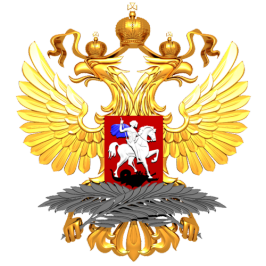The Ministry of Foreign Affairs of Russia noted the comment of spokesperson of EU High Representative for Foreign Affairs and Security Policy on that the EU member states did not coordinate their position in the voting on the Russian draft resolution of the 67-th session of the UN General Assembly on the inadmissibility of glorification of Nazism. This is not true. It is enough to look in the information bulletin of the 67-th session of the UN General Assembly, which shows the speech of the representative of Cyprus on behalf the European Union during the discussion of the draft resolution. In particular, he said that «because the text of the resolution too severely restricts the freedom of meetings and associations, the European Union abstained from voting on the draft resolution».
From the lips of European and American politicians we often hear the interpretation of a number of rights and freedoms as absolute, supposedly not subject to any restrictions. First of all, we talk about the right to freedom of opinion and expression, and the right to freedom of meetings and associations.
The Committee on the Elimination of Racial Discrimination has repeatedly called on the member states and the United States to withdraw its reservations to article 4 of the International Convention on the Elimination of All Forms of Racial Discrimination. The article requires from states-participants to pursue the spread of racism ideas in the criminal procedure. However, a number of the EU countries and the United States refused to accept the relevant legislation, as it is allegedly incompatible with the right to freedom of opinion and expression, peaceful meetings and associations. It affects on the position of some members of the EU to the Nazi rallies and marches including the glorification of the legionaries of the Waffen-SS. They, apparently, are considered in Western Europe through the prism of the implementation of those rights and freedoms.
The EU and the United States turned the blind eye to the fact that the International Covenant on Civil and Political Rights emphasized that «using of the right to freedom of expression of opinion carries the special duties and responsibilities. It may therefore be subject to certain restrictions, but they shall be established by law, and they are necessary». The same document states that «any speech in the favor of national, racial or religious hatred that represents the incitement to discrimination, hostility or violence shall be prohibited by law».
These key tenets of international human rights got their reaffirmation in the resolution on the inadmissibility of glorification of Nazism adopted at the 67-th session of the UN General Assembly with the support of the overwhelming majority of member states of the Organization. In particular, it rightly points out that the glorification of the Nazi past, the Nazi movement and neo-Nazism represents not the implementation, but the violation of the rights to freedom of peaceful meetings and associations, and the rights to freedom of opinion and its free expression.
Unfortunately, some countries turn a blind eye to these activities, which are not harmless, insulting the memory of millions of victims of Nazism and promoting the modern forms of neo-Nazism, racism and xenophobia. It seems neither Breivik nor massacre in the Sikh temple in the United States did not become the lesson to our Western partners. This lesson demonstrates where the connivance of such «freedom of expression» leads.























